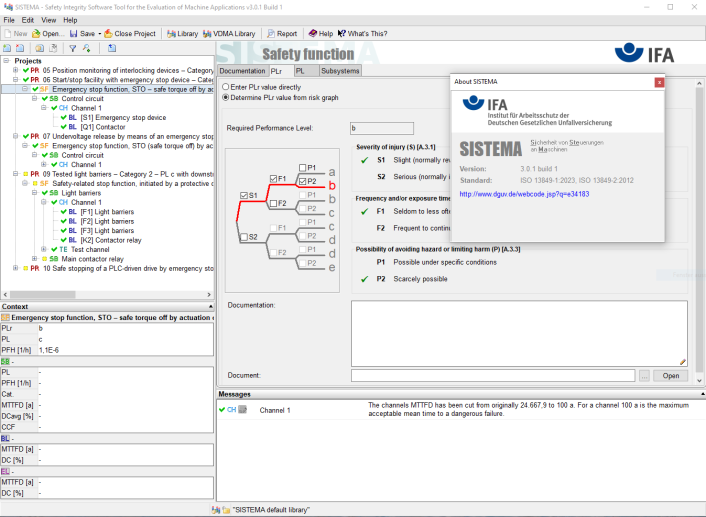The ifa build is quickly establishing itself as a pivotal event where innovation, technology, and sustainable construction converge. As the demand for smarter, more efficient homes accelerates, IFA Build becomes the platform where industry leaders, architects, and tech providers showcase their latest breakthroughs. This comprehensive article explores the myriad ways in which the ifa build is laying the groundwork for tomorrow’s residences—focusing on automation, sustainable practices, and cutting-edge technological integration.
IFA Build: Laying the Foundation for Tomorrow’s Smart Homes

The ifa build is more than just a construction event—it’s a visionary assembly that defines the future of smart living. The focus is on merging traditional construction techniques with digital innovations to produce homes that are not only comfortable but also highly connected and energy-efficient. Building smart homes involves integrating systems that enhance security, energy management, and occupant comfort seamlessly.
The foundation of tomorrow’s homes relies heavily on innovative, forward-thinking construction approaches. During IFA Build, stakeholders emphasize rethinking structural design, modularity, and integration of IoT devices from the very beginning, creating a blueprint for homes that adapt to future needs.
Emphasizing the Role of Digital Twins and Smart Infrastructure
Digital twin technology is transforming how homes are planned, built, and maintained. At the IFA Build, architects and engineers are presenting advanced digital simulation tools that enable real-time visualization of building systems before they are physically constructed. This significantly reduces errors, enhances efficiency, and allows for precise customization for occupants.
Furthermore, the integration of smart infrastructure—wired and wireless systems that connect appliances, security, automation, and energy management—creates environments that are intuitive and sustainable. These systems form the backbone of smart homes and are central themes at IFA Build, emphasizing the importance of synchronized, intelligent living spaces.
Designing Future-Ready Homes with Modular and Adaptable Components
Flexibility in design is gaining traction as a crucial factor for future homes, which should be adaptable to changing lifestyle needs. Modular construction, highlighted at IFA Build, offers scalable solutions that can be customized without compromising on quality or sustainability. This approach accelerates construction timelines, reduces waste, and promotes reusability of materials—aligning with eco-friendly goals.
Innovative modular units are designed to integrate seamlessly with home automation and renewable energy systems, creating cohesive ecosystems that can be expanded or reconfigured over time. The emphasis is on designing homes that grow and evolve along with their residents.
IFA Build 2024: Innovations in Home Automation and Construction

The 2024 edition of IFA Build is set to showcase groundbreaking innovations that are redefining how homes are built and experienced. From integrated AI-driven systems to new building materials, the event highlights advances that will shape future living environments. As technology continues to evolve rapidly, IFA Build serves as a preview of what’s to come in home automation and construction methods.
This year, greater emphasis is placed on merging artificial intelligence with traditional building practices to develop homes that are more intuitive, energy-efficient, and resilient to environmental challenges. Participants anticipate unveiling systems capable of learning occupant behavior and adjusting functionalities accordingly, leading to genuinely adaptive homes.
AI-Powered Home Automation – The Next Step in User Experience
AI-driven automation systems are fundamentally changing the way we interact with our living spaces. At IFA Build 2024, developers present smarter home interfaces capable of anticipating needs, from adjusting lighting based on circadian rhythms to optimizing heating and cooling for energy conservation.
Such advancements elevate occupant comfort while enabling more sustainable living. The innovative use of machine learning algorithms in home management systems exemplifies a move towards homes that are not just connected but intelligent—able to learn, adapt, and improve daily life seamlessly.
Revolutionary Construction Materials and Techniques
Innovative construction materials, such as self-healing concrete or ultra-lightweight composites, are gaining attention at IFA Build. These materials promise greater durability, reduced maintenance costs, and a smaller environmental footprint.
Alongside these breakthroughs, new construction techniques like 3D printing and prefabrication are faster, cleaner, and more precise. They facilitate the rapid deployment of complex structures and customizable designs, making sustainable, high-tech homes more accessible than ever before.
Sustainable Building Practices: Key Takeaways from IFA Build

Sustainability remains at the core of the ifa build discussions, reflecting the industry-wide shift toward environmentally responsible construction. The integration of renewable energy sources, eco-friendly materials, and waste reduction strategies are central themes this year. Attendees are emphasizing that sustainable building is no longer an option but an essential aspect of future-proof homes.
The event highlights successful case studies demonstrating how green building practices can significantly reduce carbon footprints while enhancing indoor air quality and occupant health. These practices are shaping new standards for eco-conscious construction industries.
Renewable Energy Integration – Powering Future Homes
The deployment of solar photovoltaic systems, wind turbines, and energy storage solutions are prominently featured at IFA Build. These technologies enable homes to generate, store, and even share renewable energy, reducing dependency on fossil fuels.
Innovative energy management platforms that coordinate these systems allow for optimized consumption, aligned with grid demands and user preferences. As energy storage becomes more affordable and efficient, the realization of truly energy-independent homes is within reach.
Eco-Friendly Materials and Circular Construction
Using recycled, biodegradable, and low-impact materials helps mitigate construction’s environmental impact. The use of bamboo, recycled steel, and bio-based insulations featured at IFA Build exemplifies this shift.
Circular construction practices—aimed at designing buildings for disassembly and material reuse—are proving vital in creating sustainable structures. These practices ensure that resources are conserved and waste minimized, setting new industry benchmarks.
The Rise of Smart Building Technology at IFA Build
Smart building technology is transforming infrastructure management by automating and optimizing systems within residential complexes. At IFA Build, innovations include integrated sensors, centralized control platforms, and advanced analytics, all aimed at creating intelligent, adaptive environments.
The future of smart building technology involves environments that are responsive to human presence, environmental changes, and energy demands—delivering enhanced comfort, safety, and efficiency.
Sensor Networks and Environmental Monitoring
Deploying extensive networks of sensors allows for continuous monitoring of indoor and outdoor conditions. These sensors provide real-time data on air quality, humidity, temperature, and occupancy, empowering home automation systems to make instantaneous adjustments.
Moreover, environmental monitoring contributes to predictive maintenance and enhances resilience against natural disasters or system failures, making homes smarter and safer.
Centralized Control and Data Analytics Platforms
The integration of centralized control platforms equipped with AI capabilities enables homeowners and facility managers to oversee multiple systems effortlessly. Through intuitive interfaces, users can customize settings, track energy consumption, and receive alerts on system performance.
Advanced data analytics further refine these systems, offering insights into usage patterns and allowing for proactive management—saving costs and reducing ecological impact.
Analyzing the Latest Trends in Prefabricated Homes at IFA Build
Prefabricated homes continue to gain momentum at IFA Build, driven by advances in manufacturing technology, design versatility, and sustainability. Prefab solutions promise quicker construction times, better quality control, and lower costs—making them attractive options for both developers and consumers seeking modern, eco-friendly homes.
The trend reflects a broader shift towards off-site manufacturing, where components are assembled in controlled environments before being transported to the site, minimizing disruptions and waste.
Customization and Design Flexibility in Prefab Homes
Innovative prefab systems now offer extensive customization options, rivaling traditional construction. At IFA Build, vendors demonstrate how modular units can be designed for various architectural styles, sizes, and functional layouts, ensuring individual preferences are met without sacrificing efficiency.
This flexibility allows for scalable housing solutions that can adapt to demographic needs, urban expansion, and environmental constraints.
Sustainability and Cost-Effectiveness in Prefab Construction
Prefab homes are inherently more sustainable due to reduced material waste and shorter construction periods. Many showcased designs utilize eco-friendly materials and incorporate energy-efficient features, aligning with the green building movement.
Cost savings stem from streamlined production processes and quicker assembly times, broadening access to high-quality, sustainable homes for a wider demographic.
IFA Build: Connecting Builders, Architects, and Technology Providers
Collaboration is at the heart of the ifa build, facilitating dialogue between diverse stakeholders. The event fosters partnerships that drive innovation, share knowledge, and accelerate the adoption of smart, sustainable building practices.
By bringing together builders, architects, and tech providers, IFA Build helps create ecosystems where new ideas can be tested and implemented effectively across projects.
Networking and Knowledge-Sharing Platforms
The event hosts extensive forums, workshops, and exhibitions designed to promote knowledge exchange. These platforms encourage dialogue, accelerate innovation, and refine best practices—creating a fertile environment for collaborative growth.
Such interactions are essential in overcoming challenges related to integrating new technologies into traditional construction workflows.
Partnerships for Innovation and Market Expansion
Strategic alliances forged at IFA Build often lead to the development of novel products and services. These collaborations facilitate market entry for emerging startups and foster the development of comprehensive, integrated systems that enhance residential quality.
By promoting cross-disciplinary cooperation, the event supports the evolution of smarter, more sustainable future communities.
Energy Efficiency Solutions Showcased at IFA Build for Future Homes
Energy efficiency remains a priority focus area, with innovations ranging from smart power grids to advanced insulation materials. These solutions aim to reduce energy wastage, lower bills, and minimize environmental impact—all crucial for sustainable living.
At IFA Build, participants demonstrate real-world applications of these solutions, highlighting their effectiveness and practicality.
Smart Energy Management Systems
The combination of IoT devices, AI analytics, and real-time data allows for comprehensive energy management. Such systems enable households to monitor and control energy use across appliances, lighting, heating, and cooling, ensuring optimal performance.
These intelligent solutions not only save costs but also promote responsible energy consumption, aligning with global sustainability goals.
High-Performance Insulation and Passive Design Strategies
Innovative insulation materials and passive design principles, such as natural ventilation and solar gains, significantly reduce heating and cooling energy demands. Demonstrations at IFA Build showcase how integrating these strategies during construction results in homes that are inherently energy-efficient.
Adopting these measures offers substantial long-term benefits, including reduced carbon footprints and increased occupant comfort.
A Deep Dive into Modular Construction Advances Presented at IFA Build
Modular construction continues to evolve rapidly, with new advancements making it increasingly versatile and efficient. During IFA Build, the conversation focuses on scalable, sustainable, and customizable modules adaptable to diverse residential needs.
The advantages include shorter construction timelines, minimized site disturbance, and the capacity for modular extensions or modifications as needs change.
Innovations in Prefab Module Design and Assembly
The latest modules feature innovative designs that maximize space utilization, aesthetic appeal, and integration of smart systems. Modular components are now engineered for easier on-site assembly, reducing labor costs and construction timeframes.
These improvements encourage wider adoption of modular strategies, transforming traditional building practices and facilitating rapid deployment of sustainable homes.
Sustainability and Lifecycle Benefits of Modular Systems
Prefabricated modules are constructed with sustainability in mind, featuring recyclable materials and energy-efficient components. Their standardized, repeatable processes also contribute to reducing resource consumption during manufacturing and installation.
Lifecycle considerations, such as ease of disassembly and adaptability for future use, make modular systems a cornerstone of resilient, sustainable housing development.
IFA Build: Exploring the Integration of IoT in Residential Construction
IoT integration represents a paradigm shift in residential construction, enabling homes to communicate, learn, and adapt. At IFA Build, the focus is on how IoT devices and platforms can streamline building management and enhance occupant experience.
The innovative integration of IoT leads to more responsive environments that support health, safety, and energy sustainability.
The Role of IoT in Predictive Maintenance and Safety
IoT sensors can monitor structural health, detect leaks, and alert residents or maintenance teams before issues escalate. This proactive approach saves costs, prevents damage, and extends the lifespan of building components.
Implementing these technologies increases safety standards within residential environments, giving residents peace of mind and reducing emergency intervention costs.
Connected Ecosystems and User-Centric Automation
Smart devices interconnected through robust platforms create a seamless user experience. Residents can control lighting, climate, security, and entertainment from a single interface, often personalized to individual preferences.
Such ecosystems foster energy savings, comfort, and convenience, illustrating how IoT integration is fundamental to modern home building.
Beyond Traditional Bricks and Mortar: The Future of Home Building at IFA Build
The future of home construction involves reimagining materials, systems, and processes to meet the challenges of urbanization, climate change, and technology integration. During IFA Build, innovative approaches challenge traditional notions, emphasizing flexibility, affordability, and sustainability.
Architects and builders are exploring new paradigms that transcend conventional building techniques, aligning with the vision of smarter, more resilient communities.
3D Printing and Robotic Construction Technologies
3D printing enables rapid, cost-effective, and highly customizable components, reducing material waste and construction time. Demonstrations at IFA Build showcase how entire structures or essential elements are printed on-site, opening up possibilities for remote or disaster-stricken areas.
Robotic construction further enhances precision, safety, and scalability, promising to revolutionize the industry for future generations.
Living Buildings and Organic Architectural Concepts
Emerging concepts like living buildings—structures that produce their own energy, filter air and water, and incorporate natural ecosystems—are gaining prominence. These designs prioritize harmony with the environment and occupant well-being, pushing the boundaries of traditional architecture.
IFA Build features pioneering projects that exemplify these ideals, reinforcing the importance of environmental stewardship and innovative design in tomorrow’s homes.
Conclusion
The ifa build stands as a significant platform where architectural innovation, technological advancements, and sustainable practices converge to shape the future of residential living. From smart home automation, modular construction, and IoT integration to eco-friendly building materials and groundbreaking construction methods, the event highlights a collective movement towards smarter, greener, and more adaptable homes. As the industry progresses, it is clear that the integration of digital tools and sustainability principles will define the next era of housing—making homes more efficient, resilient, and responsive to the needs of occupants and the environment alike.
POSTER SEO_SIBATOOL

